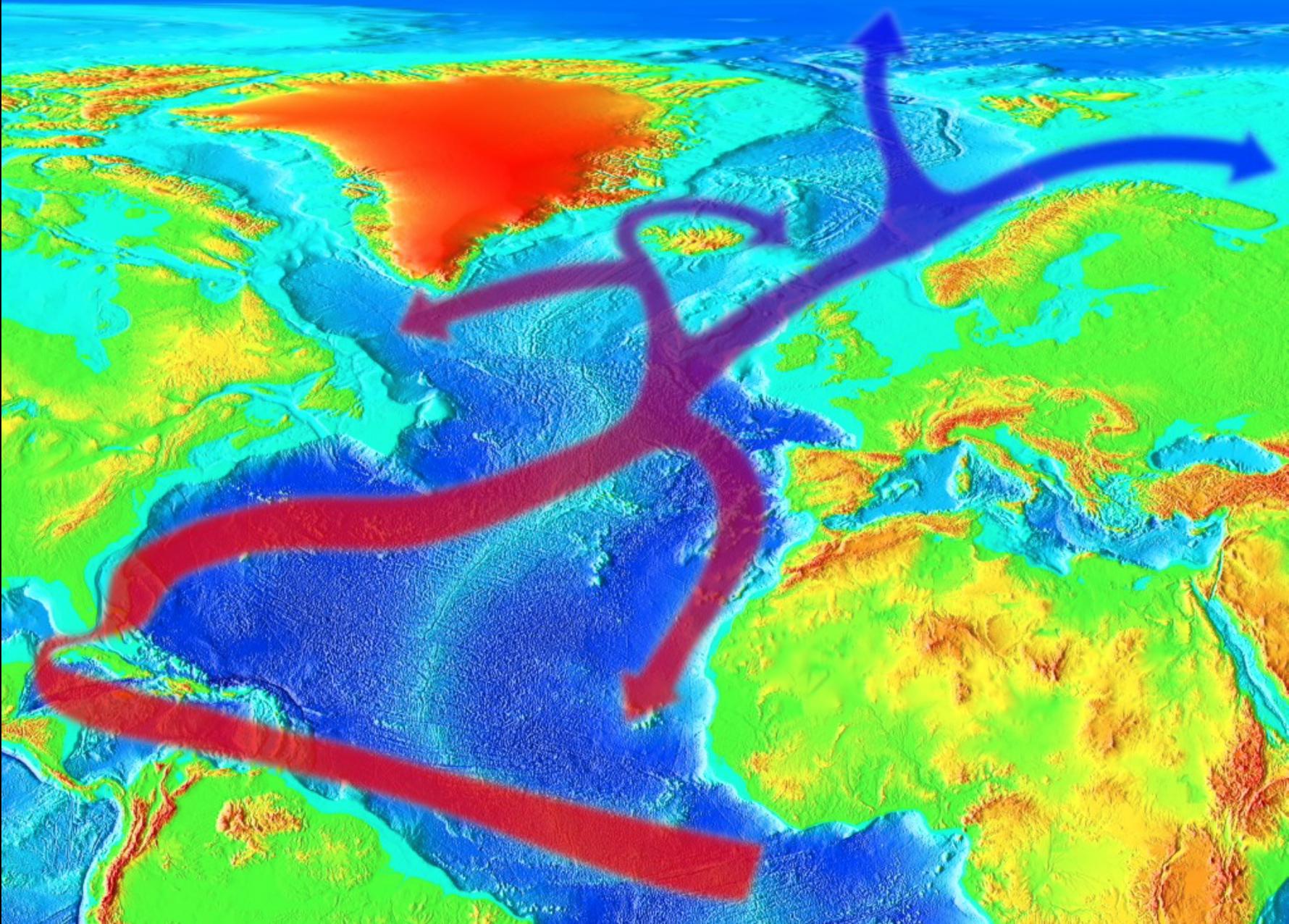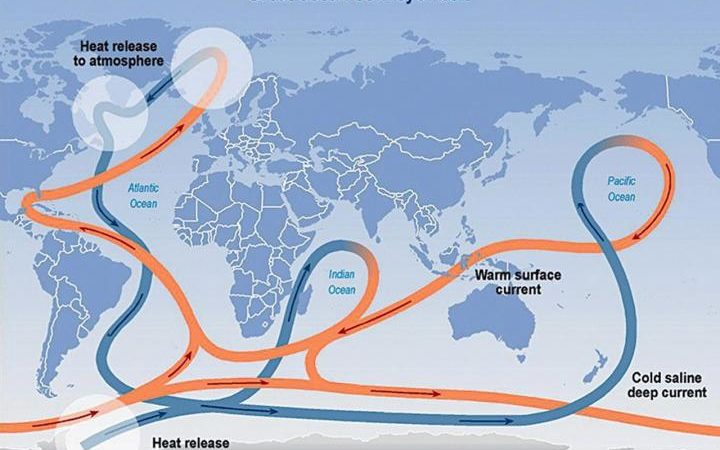© 2000-2023 - Enkey Magazine - All rights reserved
ENKEY SNC - VAT ID IT03202450924 / REA Code CA253701 - Phone. 078162719
Global Warming. It’s disturbing even the Gulf stream, which is the one, we learnt it at school, mitigates the climate of North Eurpe and that makes it such different than the rest of the world. Let’s see what’s happening to our ecosystem.
What’s the Gulf Stream?
It is a powerful hot oceanic stream of the northern emisphere. It borns in the Gulf of Mexico and it carries tropical hot water toward the Northern Atlantic.
Close to the Artic Polar Circle it gets colder and it goes down. So its cycle ends, and it restars.

It’s a process of vital importance for the mitigation of the climate of the European Countries that side on the Atlantic Ocean. Its influence arrives to the Scandinavian and over.
Basically, the Gulf Stream keeps the Europe livable by mitigating the climate at the more northern latitudes. Unfortunatelly in the last 1600 years it got weaker as much as that its strenght might fell down.
The study about the Gulf Stream
A study published on Nature Geoscience identifies the most probable cause of this negative effect of the Gulf Stream as the climate changes caused by the humans.
In Europe, there are favourable life conditions as nowhere else in the world. It’s a situation which are used to, but that is slowly changing in the time.
Infact, the Gulf Stream avoided the remotest countries from the Equator to freeze. That’s because of the overturning of the atlantic circulation, which means the big system of oceanic streams, that bring the hot water from the Tropics to the North Atlantic.
Until a few ago one thought that this cycle didn’t have an end. In reality the study just mentioned said that the stream is changing because of a change of the density of the water, combined with temperature and salinity.
What’s happen to the water?
During the cycle of the Gulf Stream, the hot water on the surface of the tropical areas evaporate, by mitigating the climate of the areas where they go through. While cooling down they get more salt and they become denser.
When they arrive to a density that brings them back to the sea bottom, they meet the cold streams and they come back on the south, where the process of ascent starts, by stimulating the growth of the phitoplancton. We are talking about the main food of the sea creatures.

Unfortunatelly, as the years went by, the man changed not only his life, but even the one of the environment where he lives. The fresch water of the extra rain and of the ice that melt for the higher temperatures disturb this process and they alterate the salinity of the sea water.
A study not quite new
Even if the new is spreading now on the web, a study published in the 2018 already told about these problems.
Basically they saw a weakening of the 15% of the stream since the half of the 20th century to today. The new work of the Postdam Institute for Climate Impact Research in Germany put together other evidences from the ocean sediments.
This last study outlined the rush of the Gulf Stream since the 400 d.C. to today and it discovered that the stream is finishing.
What’s going to happen?
If we will go on like that, according to the researchers, we will soon arrive to the point of no return where the Gulf Stream will completely stop its natural cycle.
With the current levels of grow of the global warming, the stream might reduce its power of the 45% until the end of the century. At that point we will be very close to an irreversible stop that will freeze the Europe, by speeding up the increase of the level of the sea on the american atlantic coast.
The extra water that currently is carried from the stream on north will finish on the East Coast. The world won’t be the same and the human being will be forced to find other ways to survive. Are we sure we want that?
This post is also available in:
![]() Italiano
Italiano
